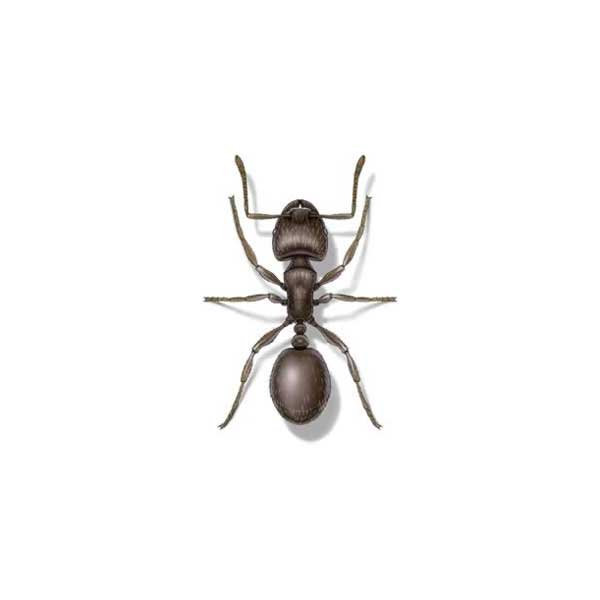
Actual Size 1/16″ to 1/8″
Characteristics: Light to dark brown to blackish; dark parallel lines run down the head and thorax.
Legs: 6
Antennae: Yes
Wings: The reproductive males and females have wings.
Habitat: Nests are located in the soil in the open or under stones and pavement, masonry or wood, near sidewalks, patios, and driveways.
Habits
The pavement ant gets its name from its habit of nesting beside and under sidewalks, driveways, and foundation. These ants pile the dirt removed from building their nest into a mound on top of the pavement. Found throughout the U.S., pavement ants are particularly common in South Carolina. New colonies are established after mating flights in June and July. As household pests, these ants are attracted to both greasy and sweet foods. Due to their close proximity to homes and buildings, these ants often make their way indoors in search of food.
Pavement ants are most often found under or near sidewalks, patios, and driveways. Located in the soil in the open or under stones and pavement, masonry or wood, nests generally occur at ground level. Workers in pavement ant colonies use pipes or wires to move upward. In commercial buildings, pavement ants can become an issue. Sometimes, alates or reproductives emerge from openings in walls above false ceilings and then drop into the rooms below. Preferring to be outdoors in warm weather, during winter, pavement ants are more likely to be found in homes near a heat source such as a radiator or heating duct.
Pavement ants are nuisance pests and cause unsightly piles of sand on driveways, patios, sidewalks, or in basements. Although they can bite and they do have a stinger, pavement ants rarely bite humans. These ants do not pose a public health risk, but they can contaminate food as they forage. They will scavenge for any kind of edible crumb and will invade buildings to find food resources for their substantial colonies. When nests aren’t treated in time, pavement ants will continue to spread into new populations. If a pavement ant infestation is suspected, it is recommended to contact a professional ant exterminator.